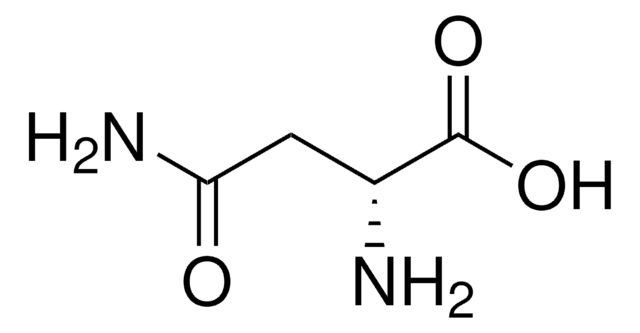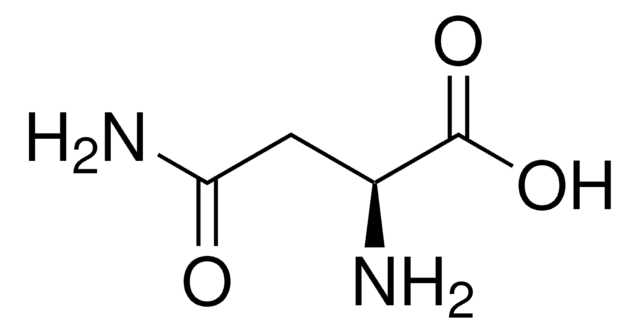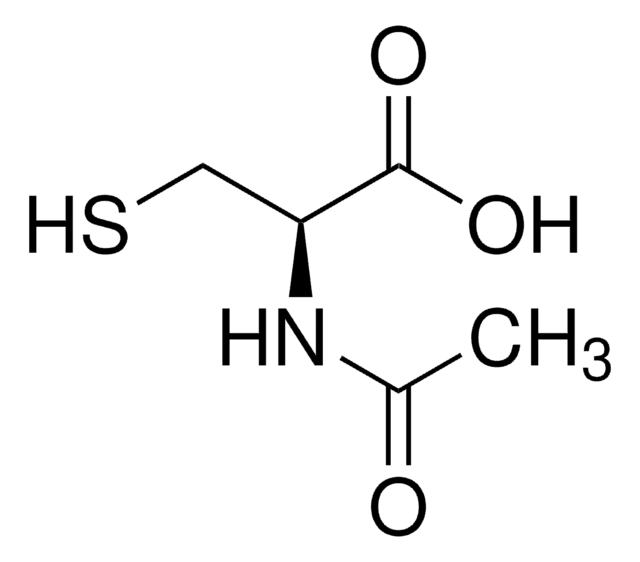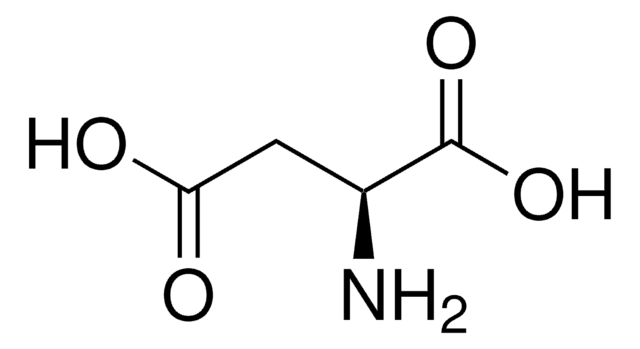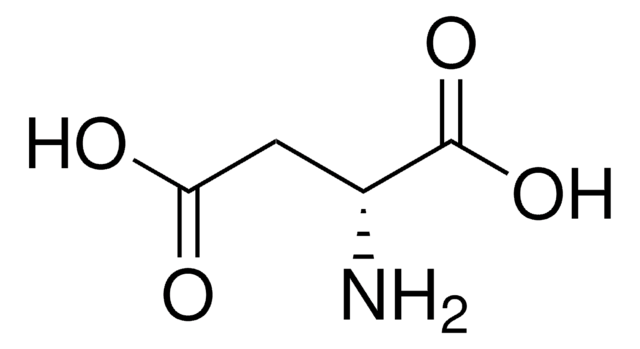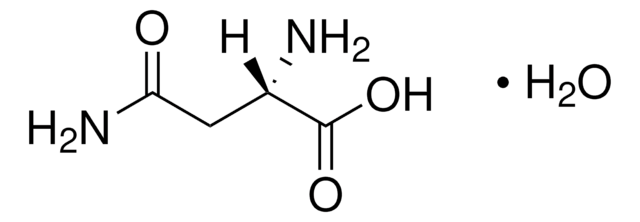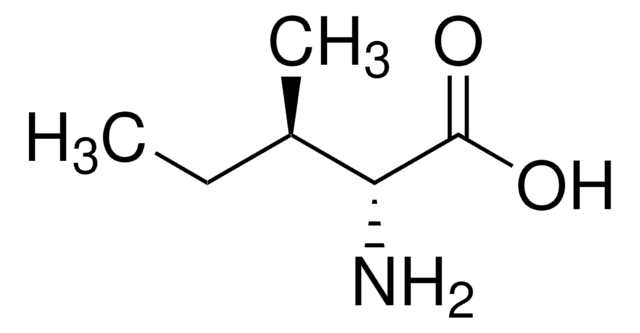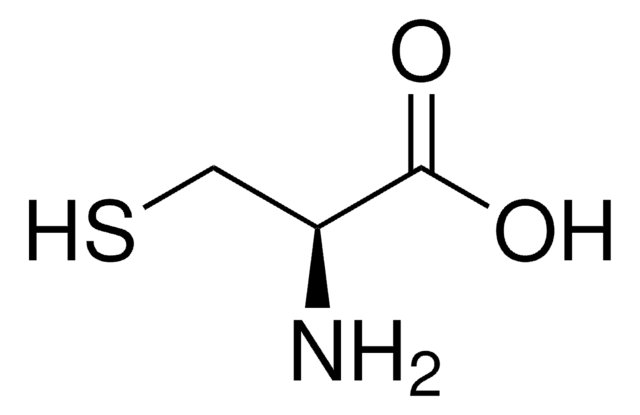A8131
D-Asparagine monohydrate
≥99% (TLC)
Synonym(s):
(R)-(-)-2-Aminosuccinamic acid, (R)-2-Aminosuccinic acid 4-amide, (D)-Aspartic acid 4-amide
About This Item
Recommended Products
Quality Level
assay
≥99% (TLC)
form
powder or crystals
color
white to off-white
mp
275 °C (dec.) (lit.)
application(s)
peptide synthesis
SMILES string
NC(C[C@@H](N)C(O)=O)=O.[H]O[H]
InChI
1S/C4H8N2O3.H2O/c5-2(4(8)9)1-3(6)7;/h2H,1,5H2,(H2,6,7)(H,8,9);1H2/t2-;/m1./s1
InChI key
RBMGJIZCEWRQES-HSHFZTNMSA-N
Looking for similar products? Visit Product Comparison Guide
Related Categories
Storage Class
11 - Combustible Solids
wgk_germany
WGK 1
ppe
Eyeshields, Gloves, type N95 (US)
Certificates of Analysis (COA)
Search for Certificates of Analysis (COA) by entering the products Lot/Batch Number. Lot and Batch Numbers can be found on a product’s label following the words ‘Lot’ or ‘Batch’.
Already Own This Product?
Find documentation for the products that you have recently purchased in the Document Library.
Chromatograms
application for HPLCOur team of scientists has experience in all areas of research including Life Science, Material Science, Chemical Synthesis, Chromatography, Analytical and many others.
Contact Technical Service